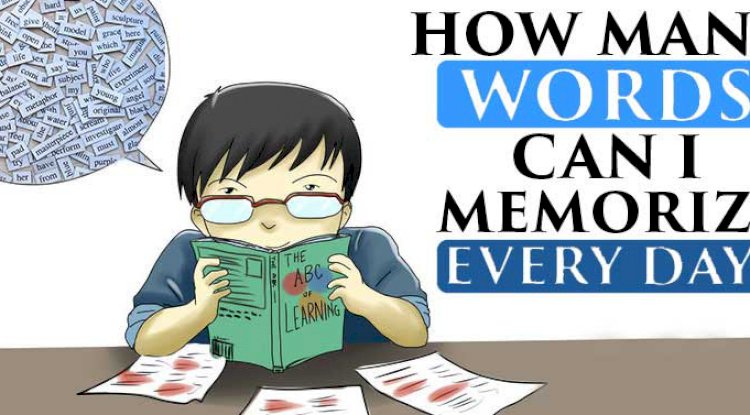5 Tricks for Faster Memorization of New Words

When you learn something new, you don’t simply understand its meaning - you also keep in memory the knowledge with the goal of using it eventually. Is that right? Everyone does that. But some people can do it faster than others because they have a set of strategies, or let’s say tricks. In memorizing new words, for instance, the oldest way is by repeating it all over again until it stays in the mind. Don’t you find that a bit, if not absolutely, stressful?
There may be more effective ways that you can achieve the same results without exerting too much mental effort. The availability of many online resources has made it possible now for self-education to take on greater heights. People can now use their mobile phones and personal computers to search for anything on the web - words, facts, meanings, etc. And this has revolutionized how people learn and do business. Students and professionals alike have something to gain for their advantage. But again, it’s important that in using these technologies, you can expand your knowledge in the process. As part of your toolkit, these are the tricks recommended for faster memorization of new words and facts:

Understand the Information
It’s easier to remember the words and their meanings if you understand the material where they are used. The topic and the context are a guide to comprehend what does it convey. Once this is clear to you, you can recall the object when you encounter the same circumstances where you read it. Otherwise, you’ll read it passively without the benefit of recall later on. There are helpful resources online which you can also use to improve on comprehension - if not for you, then for your kids. The use of many technologies such as mobile offline and online thesaurus has made it easier for various users to build their vocabulary much better than ever before.
Associate Meaning to Objects
Words come with different meanings depending on how they’re being used. You have to keep that in mind. But for purposes of memorization, a mere recall of the term and its definition sometimes fails. Because that strategy is basically good for short-term memory only. The trick to have it part of your long-term memory is to associate the meaning or the word itself to a certain object that it’s closely related with. One classic example is seeing a heart shape and then what comes to mind automatically is “love”. That’s the main idea of the trick, and that’s gonna help you recall much faster and easier.
Do Self-Test and Practice
Simple quizzes can work wonders for you. After you’ve read an article, for instance, and encountered an unfamiliar word, you need to do some basic recall exercises right after. Once you do this in combination with the preceding strategies, the process would be a lot easier. Kids and teens do this at school, but it doesn’t discriminate between them and professionals. The latter may also be needing the same as the nature of their business may require communications where good vocabulary is essential. The old cliche, “practice makes perfect”, holds very true in this case.
Use Mnemonic Devices and Other Tools
To make memorization an even lighter job, you have to make the information memorable. And the use of mnemonic devices is another trick for the purpose. If you’re not familiar with that, it’s simply the use of abbreviations, as an example, for each letter of the word that tells about its individual meaning. You can just remember three scientific terms by reducing them to their first letters. Example: GSP for Gold, Silver, and Platinum. Very simple, isn’t it? What can be even more useful is if you use tools such as online and offline dictionaries and thesaurus too look up for meaning of unfamiliar term whenever you need to. This technology has found its place both in educational institutions and workplaces.

Recall and Apply More Often
The more often you recall a new word, the higher the chances you’d be able to remember it at a later time. But as mentioned above, that’s the classic technique. It won’t work all alone. But nevertheless, if you apply it in actual speaking or writing engagement, that would normally become part of your memory. You can make this whole process a lot more fun by using certain technologies such as mobile applications which come with interactive features and are user-friendly, too. Many of these are offered for free online, but you can opt for a better choice of having an app installed on your phone. They can be your helpful companion for your language needs.
These tricks can come to your rescue if you’re having a hard time recalling words that you encounter for the first time. Eventually, as you practice each one, you can create a good habit that can build your memory skills. It will pay huge sums once you get your desired results with a robust vocabulary.
Share
What's Your Reaction?
 Like
0
Like
0
 Dislike
0
Dislike
0
 Love
0
Love
0
 Funny
0
Funny
0
 Angry
0
Angry
0
 Sad
0
Sad
0
 Wow
0
Wow
0
















